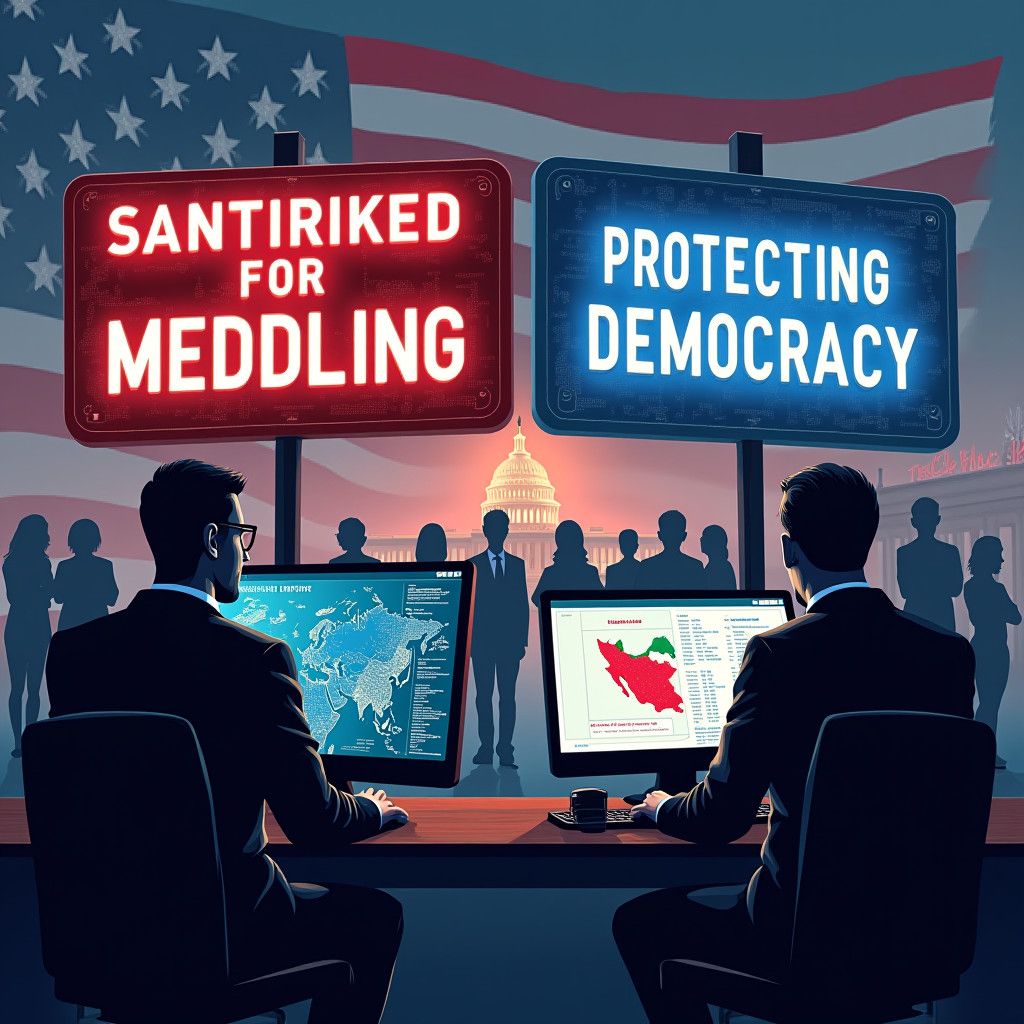The geopolitical landscape surrounding election integrity has become increasingly complex, particularly as troubling reports of foreign interference mount. Recently, the United States imposed sanctions on Iranian and Russian entities, targeting their alleged involvement in tampering with the electoral processes. This move underscores the growing emphasis on protecting democratic institutions and highlights the sophisticated tactics that foreign adversaries may employ in their efforts to sway public opinion.
In recent months, both Iran and Russia have been accused of using advanced techniques, including artificial intelligence, to influence elections. Reports suggest that these countries deploy various strategies, from disinformation campaigns to targeted advertisements, aimed at manipulating voter sentiments and undermining trust in electoral outcomes. The implications of these actions are significant, raising questions about the reliability of domestic elections and the potential erosion of democratic norms.
The US Department of Treasury’s Office of Foreign Assets Control (OFAC) announced the sanctions, which specifically named certain individuals and organizations identified as being directly involved in these efforts. This action is part of a broader strategy to deter foreign adversaries from meddling in U.S. elections and to hold them accountable for their actions.
The sanctions underscore several critical points:
1. Advanced Technologies in Election Interference: The involvement of AI illustrates how modern technology can be weaponized. For instance, AI algorithms can analyze vast amounts of data to craft bespoke misinformation that resonates with specific voter demographics, making it more likely to influence opinions and behaviors. Countries like Iran and Russia have reportedly harnessed these technologies to exploit social media platforms, spreading divisive content that can amplify political discord.
2. Impacts on Domestic Democracy: The repercussions of foreign interference extend beyond immediate election outcomes; they threaten the foundational trust that citizens place in democratic institutions. A significant percentage of the population may start to doubt the legitimacy of election results, potentially leading to political instability and weakened civil society.
3. Global Response and Accountability: By imposing sanctions, the U.S. sends a clear message that malicious foreign acts will not go unpunished. This action is part of a coordinated international effort; many countries are increasingly aware of the need to safeguard their electoral processes against external threats. For example, the European Union has also implemented measures to curb foreign interference, highlighting the global nature of the challenge.
4. The Role of Cybersecurity: Protecting elections requires robust cybersecurity measures. Nations must foster collaboration between government agencies, private sector players, and civil society to create resilient systems capable of defending against sophisticated cyber threats. Investment in research and education about the implications of AI in election interference is essential for developing effective countermeasures.
5. Public Awareness and Media Literacy: Ultimately, the responsibility for defending democracy doesn’t solely rest with governments. Educating the public on recognizing and resisting misinformation is crucial. Media literacy programs can empower individuals to critically evaluate information, reducing the effectiveness of propaganda campaigns.
The sanctions have garnered support among various political factions, emphasizing the need for a united front against foreign aggression. At the same time, some critics argue that the focus should also be on domestic vulnerabilities within the electoral system that make interference possible.
As the landscape of election interference continues to evolve, it is crucial for nations to remain vigilant. An ongoing evaluation of strategies against foreign meddling, investment in technology, and collaboration among stakeholders will be key in safeguarding democracy. The decision to impose sanctions is a step towards accountability, but it must be part of a comprehensive approach to ensure the integrity of elections.
In conclusion, the recent sanctions against Iranian and Russian entities signal a determined stance from the United States in the face of election interference. The implications of these actions extend beyond mere punishment; they encompass a broader commitment to uphold the principles of democracy and transparency in the electoral process.












